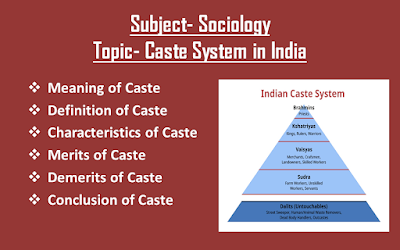Law- Meaning, Definition, Sources and Types
# Meaning of Law
The term law has been derived from the Latin term ‘Legam’ which means the ‘body of rules’.
A set of rules of conduct established by government for all members of society to obey and follow are called law.
The term ‘law’ denotes different kinds of rules and principles. Law is an instrument which regulates human conduct or behavior.
Every society is a political organization and in every political organization law is inevitable. Law is a social control over society.
Norms, customs, traditions are all come under the law if the law did not exit then the society will not be arranged in a manner.
# Definition of Law
1. According to Austin:- “Law is aggregate of rules set by men politically superior or sovereign to men as politically subject.”
2. According to Erskine:- “Law is the command of the sovereign, containing a common rule of life for his subjects and obliging them to obedience.”
3. According to Salmond:- “The law may be defined as the body of principles recognized and applied by the state in administration of justice.”
4. According to Max Weber:- “Law is an order, the validity of which is a guaranteed by the probability that deviation will be met by physical or psychic sanction by a staff.”
5. According to Gray:- “The law of the state or of any organized body of men is composed of the rules which the courts, that is the judicial organ of the body lays down for the determination of legal rights and duties.”
1. Customs and Traditions:- Every society has certain customs and traditions which regulate the behavior and life of the members of the society. On the basis of these customs and traditions, the laws are framed by the state.
2. Religion:- Religion is another source that guided and regulates the behavior of the individuals. It is recognized not only by the society but also State. The provisions of the religions have to be obeyed by peoples as duty. On the basis of this religion, laws of framed and enacted by the State.
3. Judicial decisions:- Judicial decisions are helpful in solving the problem of future. Many of the decisions of higher court today such as High court and the Supreme Court etc. become law not only for lower court but also for the other members of the society. On the basis of these decisions, laws are enacted and framed by the state and other agencies.
4. Scientific commentaries:- Jurists and other scholars write certain commentaries on certain laws. In these commentaries that bring out the facts. The scientific commentaries relate to certain principles and that is why they serve as an important source of law.
5. Equity:- Principle of equity lays down the decision that are made by the courts in a worthwhile manner. Law courts pronounce decisions on the basis of equity particularly in the case where no law is existent or present. Such decisions serve as an important source of the origin and development of law.
6. Legislation:- In the modern and democratic societies, it represents the will of the people. Legislators comprise of the representative of the people and they in order to meet the needs of the society enact various types of legislation. The draw up various sources enacts legislations that may be useful for the society.
# Types of Law
1. Constitution Law:- Constitutional laws are those laws which are written in the constitution of a particular country. State is itself guided by constitutional law. It is that law which determines the relationship between the state and the people. It acts as a check on the power of the state.
2. Ordinary Law:- It means that laws which is based on the customs and traditions. Such laws are not enacted and framed by any legislature but develop as a result of customs and traditions and it is accepted by law courts.
3. Public Law:- Under this law all the rights, political and others of an individual citizens are described. Public law runs the normal functioning of the society.
4. Private Law:- It is that law on the basis of which the personal behaviors of the individuals are regulated and guided. These laws laid down and determined rights and duties of individual citizens. Law of contract, law of torts, etc. are the laws of this type.
5. National Law:- All the laws that are classified under public law and private law formed the national law. All the laws that are prevalent within the limits of the territory of a nation are known as national law. These laws are applied on all these citizens alike and they are enforced the sovereign authority of the state.
6. International Law:- The law on the basis of which the relationship between different nations are regulated and determined are known as International law. These laws are enacted neither by state nor by any authority. They are based on mutual consent and good-will
7. Administration Law:- Law on the basis of which the administration of government is run are known as administrative law. These laws laid down the regulation on the basis of which the administration shall be run, the Government employees shall act and the citizen shall be treated.
Watch video on YouTube







